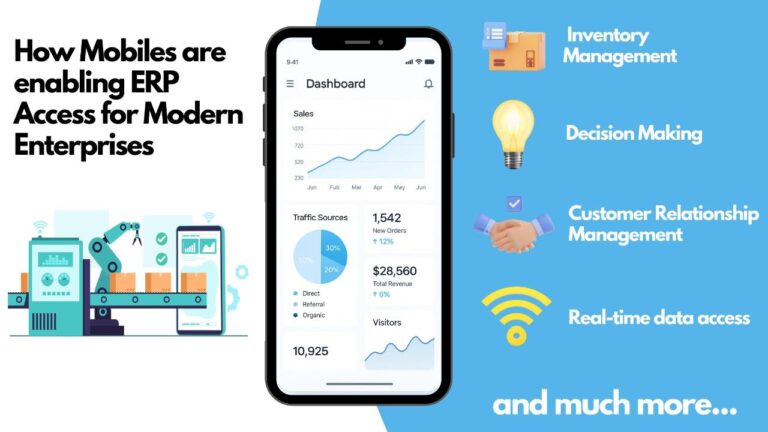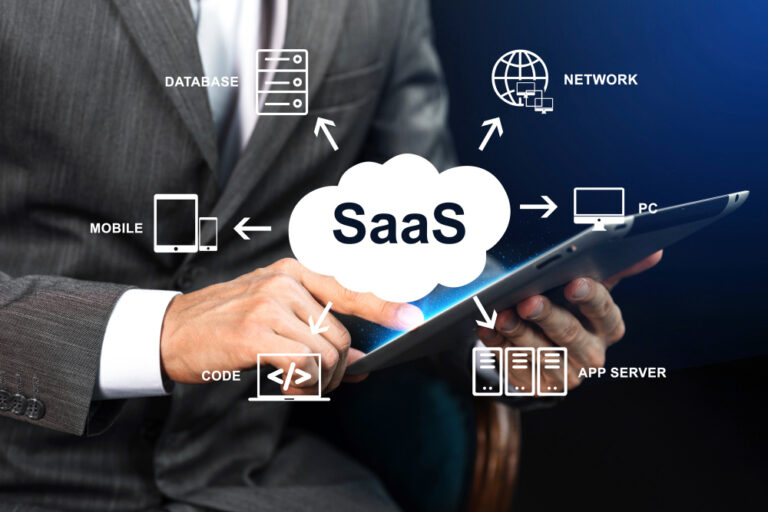
In the ever-evolving world of business technology, Software as a Service (SaaS) has taken the Enterprise Resource Planning (ERP) market by storm. Traditional on-premise ERP systems are gradually being replaced by cloud-based solutions that offer flexibility, scalability, and cost-effectiveness. As companies across industries embrace digital transformation, SaaS ERP is becoming the go-to choice for businesses of all sizes.
Why SaaS for Industries?
Industries across various sectors are increasingly adopting SaaS solutions due to their efficiency, adaptability, and cost-effectiveness. Here’s why SaaS is a game-changer for different industries:
- Manufacturing – SaaS ERP helps streamline production planning, supply chain management, and quality control while reducing costs.
- Retail & E-commerce – Real-time inventory tracking, automated order processing, and seamless customer management enhance operational efficiency.
- Healthcare – Compliance with regulations, improved patient data management, and automated billing systems contribute to better healthcare services.
- Finance & Banking – Enhanced security, compliance with financial regulations, and automation of financial transactions ensure smooth operations.
- Education – SaaS-based ERP solutions simplify student data management, online learning platforms, and institutional administration.
- Logistics & Transportation – Real-time tracking, optimized fleet management, and automated route planning help improve delivery efficiency.
What is SaaS ERP?
SaaS ERP is a cloud-based enterprise resource planning solution that is hosted and maintained by a vendor. Instead of installing ERP software on company-owned servers, businesses access it via the internet, paying a subscription fee. This model eliminates the need for heavy upfront investments in hardware and IT infrastructure, making ERP solutions more accessible to growing businesses
Key Benefits of SaaS ERP
Traditional ERP solutions require a significant capital investment in hardware, software, and IT personnel.
Businesses can scale their ERP system as they grow without worrying about capacity limitations. With SaaS ERP, companies can add or remove features, users.
- Cost-Effectiveness
- Scalability & Flexibility
- Automatic Updates & Maintenance
- Accessibility & Remote Work Enablemen
- Enhanced Security & Compliance
- Faster Implementation & Deployment
Trends Driving SaaS ERP Adoption
Cloud-First Strategies – Businesses are prioritizing cloud solutions to improve agility and efficiency.
AI & Automation – Advanced analytics, machine learning, and AI-driven automation are enhancing ERP functionalities.
Mobile ERP – Increasing demand for mobile-friendly ERP solutions to support workforce mobility.
Integration with Other SaaS Tools – Seamless integration with CRM, HR, and other business applications is making SaaS ERP even more valuable.
What is SaaS ERP?

When selecting a SaaS ERP solution, businesses should consider:
- Customization & Integration Capabilities – Ensure the system can integrate with existing tools and adapt to business needs.
- Vendor Reputation & Support – Look for a provider with a strong track record and reliable customer support.
- Security & Compliance – Verify that the ERP meets industry standards and protects sensitive data.
- Scalability – Choose a solution that can grow alongside your business.
Conclusion
As the ERP market continues to shift toward SaaS solutions, businesses must evaluate their needs and choose a platform that aligns with their growth strategies. The benefits of SaaS ERP—cost savings, flexibility, security, and accessibility—make it a compelling choice for organizations looking to stay competitive in the digital age. With cloud technology becoming the new norm, the future of ERP is undoubtedly SaaS-powered.





